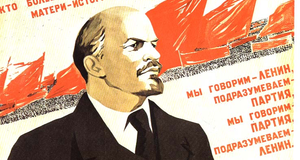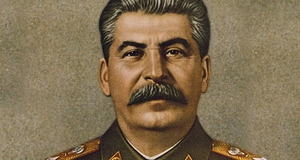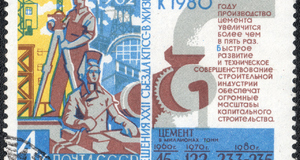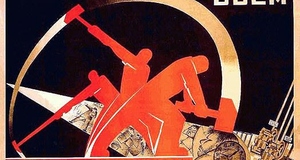Lenin's New Economic Policy: Coverage of the Policy by the New York Times
By
2010, Vol. 2 No. 06 | pg. 3/3 | « Duranty’s observations of Moscow life in the article “Russians’ New Life as Lived in Moscow” were extremely optimistic.43 He begins with the joyous line “Life has adjusted itself wonderfully to the changed conditions in Russia.”44 Duranty first discusses how the lives of the proletariat improved the greatest: "Of the different classes of the population, the worker’s naturally found things the most satisfactory. For lodgment they had been used to an overcrowded den an American dog would have refused and their food was the simplest and coarsest. Since the revolution they have had rations, now supplemented by pay, which are generally superior to their former faire, while two or three rooms, comparatively clean and airy, per family, mean unwonted comfort. In fuel allowance they get the preference and as far as possible their houses are centrally heated."45 Duranty’s description of the aristocracy’s fate is less truthful. He writes that “the former aristocracy and official and professional classes naturally felt the change the most, but by now they have in a large degree adjusted themselves and taken positions under the government which enable them to carry on.”46 After the White Army’s defeat in the Civil War only three years earlier, the majority of aristocrats emigrated from the intensely hostile anti-bourgeois environment. Those who did not were eradicated. To say that the former aristocracy was welcomed by the new government, and conversely that the aristocracy itself welcomed the Bolsheviks, is completely false. One can claim that Duranty’s overly optimistic generalizations of Moscow life was fueled by his enthusiasm for the New Economic Policy. Taylor discusses extensively how Duranty’s trip to Moscow altered his perspective. Upon seeing the rapid openings of restaurants, nightclubs, gambling halls, etc, Duranty made plans to stay in Russia indefinitely.47 Moscow’s bacchanalia appeared to bring a certain level of equality to the city. Duranty wrote that life during the New Economic Policy “reminded me of the Old Roman Saturnalia, when for three days each year slaves and underlings might usurp with impunity the pleasures and privileges of their masters.”48Taylor argues that the greatest impact on Duranty’s political views came when he entertained revolutionaries who were disillusioned with the New Economic Policy in his parlor.49 Duranty would hold long discussions with them, and disagree with them for the sake of disagreement; ultimately dismissing their views and declaring his support for the Soviet government’s changes.50 Taylor concludes that, "Duranty took the view that the Bolsheviks were firmly in control of the country, and that this control would not be shaken. With this in mind, he now came to view the New Economic Policy as only a temporary expedient. He expected the Soviets to return to a more militant socialist path."51 Duranty’s coverage of the New Economic Policy ultimately resulted in his exuberant support of Stalin years later. Ironically, what Duranty valued most in the New Economic Policy-universal free trade-led to his support of communism, its exact antithesis. Once again, Duranty’s sincerity is forever in question.52 Nonetheless, Duranty wrote in 1933: "On August 9, 1921, I wrote ‘Lenin has thrown communism overboard.’53 That was understatement. But now Stalin in my opinion marks a new militant phase-like ‘militant communism’-and is out to accomplish what Lenin could not-collectivization of the peasants."54 Duranty’s negative portrayal of the Bolsheviks in early 1921 gradually evolved into a laudatory appraisal of Stalin. His coverage of the New Economic Policy demonstrates his conflicting view of the Soviet government. On one side of the spectrum, Duranty saw the Soviets as a legitimate and long lasting authority. On the other side, Duranty saw its imminent collapse. The famine is also an important factor to consider in Duranty’s coverage, as is the setting of his articles. Ultimately, Duranty became an enthusiastic supporter of Stalin years after his stay in Moscow during the New Economic Policy. Consequently, the New Economic Policy played a pivotal role in shaping Duranty’s understanding of the Soviet government. ReferencesSecondary SourcesBall, Alan. Russia’s Last Capitalists: The Nepmen, 1921-1929. Berkeley: University of California Press, 1987. Taylor, S.J. Stalin’s Apologist: Walter Duranty, The New York Times’ Man in Moscow. New York: Oxford University Press, 1990. Primary SourcesDuranty, Walter. “Senator France Sees Russia Going Back to ‘Capitalism,’” The New York Times, August 1, 1921, 1. Duranty, Walter. “Famine is Driving Russia to Revolt; Myriads of Victims Move on Cities; Peasant Vanguard Routs Red Troops,” The New York Times, August 2, 1921, 1. Duranty, Walter. “Russian Relief Body May Upset Soviet,” The New York Times, August 6, 1921, 1. Duranty, Walter. “Lenin Abandons State Ownership as Soviet Policy,” The New York Times, August 13, 1921, 1. Duranty, Walter. “Lenin Gives Reasons Why Policy Failed,” The New York Times, August 14, 1921, 2. Duranty, Walter. “Relief Conference in Riga Suspends,” The New York Times, August 16, 1921, 1. Duranty, Walter. “Soviet Reveals Famine Horrors; Confirms Rumors,” The New York Times, August 30, 1921, 1. Duranty, Walter. “Lenin Places New Hope in His New Policy,” The New York Times, September 8, 1921, 2. Duranty, Walter. “Moscow is Buying and Selling Again,” The New York Times, September 10, 1921, 3. Duranty, Walter. “Russians’ New Life as Lived in Moscow,” The New York Times, September 14, 1921, 18. Endnotes1.) Walter Duranty, “Senator France Sees Russia Going Back to ‘Capitalism,’” The New York Times (August 1, 1921): 1. 2.) Ibid. 3.) Ibid. 4.) S.J. Taylor, Stalin’s Apologist: Walter Duranty, The New York Times’ Man in Moscow (New York: Oxford University Press, 1990), 99. 5.) Walter Duranty, “Senator France Sees Russia Going Back to ‘Capitalism.’” 6.) Ibid. 7.) Walter Duranty, “Famine is Driving Russia to Revolt; Myriads of Peasants Move on Cities; Peasant Vanguard Routs Red Troops,” The New York Times (August 2, 1921): 1. 8.) Ibid. 9.) Ibid. 10.) Ibid. 11.) Ibid. 12.) Walter Duranty, “Russian Relief Body May Upset Soviet,” The New York Times (August 6, 1921): 1. 13.) Ibid. 14.) Ibid. 15.) Ibid. 16.) Walter Duranty, “Lenin Abandons State Ownership as Soviet Policy,” The New York Times (August 13, 1921): 1. 17.) Ibid. 18.) Ibid. 19.) Taylor, 99. 20.) Ibid. 21.) Walter Duranty, “Lenin Abandons State Ownership as Soviet Policy.” 22.) Alan Ball, Russia’s Last Capitalists: The Nepmen, 1921-29 (Berkeley: University of California Press, 1987), 15. 23.) Ball, 16. 24.) Walter Duranty, “Lenin Gives Reasons Why Policy Failed,” The New York Times (August 14, 1921): 1. 25.) Ibid. 26.) Ibid. 27.) Walter Duranty, “Relief Conference in Riga Suspends,” The New York Times (August 16, 1921): 1. 28.) Taylor, 197. 29.) Walter Duranty, “Soviet Reveals Famine Horrors; Confirms Rumors,” The New York Times (August 30, 1921): 1. 30.) Ibid. 31.) Ibid. 32.) Taylor, 116. 33.) Walter Duranty, “Lenin Places New Hope in His New Policy,” The New York Times (September 8, 1921): 2. 34.) Ibid. 35.) Ibid. 36.) Ibid. 37.) Walter Duranty, “Moscow is Buying and Selling Again,” The New York Times (September 10, 1921): 3. 38.) Ibid. 39.) Ball, 17. 40.) Walter Duranty, “Moscow is Buying and Selling Again.” 41.) Ibid. 42.) Ibid. 43.) Walter Duranty, “Russian’s New Life as Lived in Moscow,” The New York Times (September 14, 1921): 18. 44.) Ibid 45.) Ibid. 46.) Ibid. 47.) Taylor, 116. 48.) Walter Duranty, I Write as I Please (New York: Simon and Schuster, 1935), 140, found in Taylor, 117. 49.) Taylor, 120. 50.) Ibid. 51.) Taylor, 139. 52.) Taylor,197. 53.) The correct date is August 13, 1921. 54.) Taylor, 158. Suggested Reading from Inquiries Journal
Inquiries Journal provides undergraduate and graduate students around the world a platform for the wide dissemination of academic work over a range of core disciplines. Representing the work of students from hundreds of institutions around the globe, Inquiries Journal's large database of academic articles is completely free. Learn more | Blog | Submit Latest in Business & Communications |


















